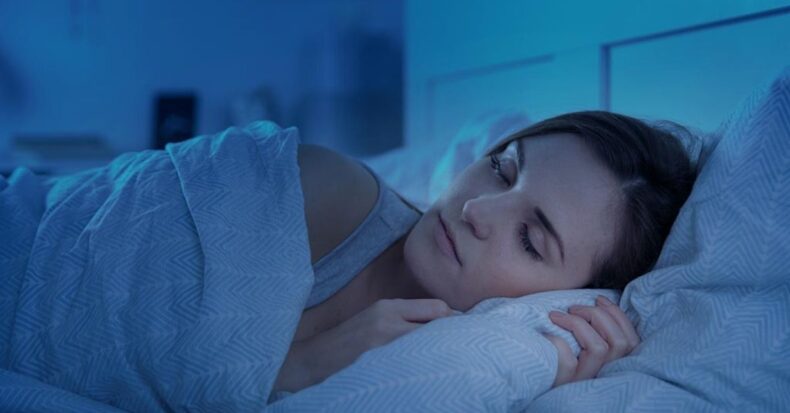Sleep is often seen as time wasted and lost forever. We think that there are better things to do rather than getting a good night’s sleep for hours.
Proverbs warn us about being left behind while sleeping in practically every language and culture, claiming that one must not sleep if one wants to achieve their dream.
Idioms like “Caught Napping” and “Burning the midnight oil” tell us that we must cut down on sleep if we want to do something great in life.
Is Sleeplessness a recipe for success?
An average adult sleeps for 6.8 hours a night. In Japan, the national average sleep is 5 hours and 59 minutes; in Saudi Arabia, it is 6 hours 8 minutes; in Sweden, it is 6 hours 10 minutes, and in India, it is 6 hours 20 minutes.
These numbers can kill us in the long run. Science says that an average adult needs to sleep at least 7.5 hours a night.
In these 7.5 hours, a person completes five 90 minute sleep cycles. During these cycles, our brain moves from a deep Non-Rapid eye movement sleep to a Rapid eye movement sleep. Non-Rapid eye movement sleep dominates the first couple of cycles.
The Non-Rapid eye movement sleep cleanses and maintains our body, brain, and heart. The next set of cycles is necessary for processing and learning all the information we have gathered throughout the day.
People experiencing troubles in recalling or remembering information or calling names can blame it on their Sleeplessness.
America’s centre for disease control recommends 7 hours or more sleep. 7.5 hours a night is the recommended time for sleep.
It applies to all adults barring a certain percentage of the population who have a rare gene mutation that allows them to function with less sleep.
When should we sleep?
Is it okay if we complete our sleep quota in the mornings, afternoon, or evening? It is a myth to say that it doesn’t matter when you sleep unless you get eight hours.
Science says that people are their sleepiest at two points in a day, from 1 PM to 3 PM and between 2 AM and 4 AM.
The appropriate time to go to sleep is between 8 PM and midnight. The Vedas say that we must wake up around 3:30 AM, and it is called the “Brahma Muhurta,” that is, ‘The time of the creator.’
However, Practically it is not possible in the world we have created for ourselves. Most people have night shifts, late-night work calls, or even projects and assignments for students with cramped deadlines keeping them up late.
What happens if you sleep after midnight?
The National Library of Medicine conducted a study that shows that late Bedtime is associated with depressive symptoms often seen among Japanese workers.
Some researchers believe that even if one sleeps by 2 AM and finishes the 7.5-8 hours of sleep, it is safe for any risk of cardiovascular disease or Diabetes.
However, it is necessary to ensure that this 7.5 to 8 hours of sleep is undisturbed, which is not the case in most scenarios.
Morning work calls or doorbells, traffic noise, school, college, or even milkman, everything hinders the sleep resulting in sleep deprivation.
What are the consequences of sleep deprivation?
Lack of sleep results in health problems and a drop in productivity. Sleep deprivation is connected to physical health problems such as cardiovascular disease, hypertension, and Diabetes. A few studies also show that lack of sleep is associated with breast cancer in women and prostate cancer in men.
Researchers in Hong Kong University found discernable damage in the DNA of people whose sleep was disrupted even for one night. According to experts, this may show the link between cancer and sleep deprivation.
Additionally, sleep deprivation is linked to anxiety and depression. South Korea and Japan rank the lowest when it comes to a good night’s sleep which may explain why South Korea and Japan have the most suicide rates in the world.
Japan also has a phenomenon called ‘Karoshi,’ which is death caused by lack of sleep.
King’s College London also conducted a study on lack of sleep and found that sleep-deprived people consume an average of 385 Kcal extra per day. Two hormones explain the link between sleep deprivation and obesity.
Leptin and Ghrelin hormones both control food intake. Leptin alerts the brain when an individual is full, and Ghrelin urges to eat more. Sleep-deprived individuals have low Leptin and high levels of Ghrelin which explain the additional food intake.
Productivity is also connected to sleep. Lack of sleep makes it hard for an individual to concentrate. The United States loses an equivalent of 1.2 million working days per year because people don’t get enough sleep. This kind of loss affects a country’s GDP.
Sleep Deprivation is helping no one other than the market. Brands are capitalizing on our lack of sleep and sleep habits.
Most of us are scrolling through our devices before going to sleep. These devices emit blue light. Blue light boosts the production of cortisol in our bodies, making it hard for us to sleep.
Brands are promising sleep with lotions and essential oils that promise a good sleep. There are paid applications that promise to make individuals sleep with relaxing sounds. Sleep has become a product and a luxury product in today’s day.
The web series can be paused, long calls can be taken in the morning, and our dreams or careers can take some rest for a good 7 hours of sleep.













